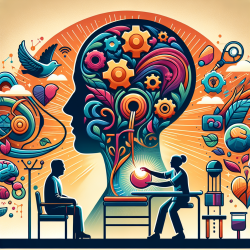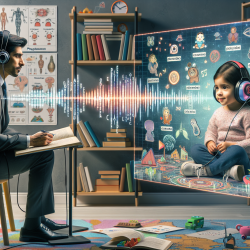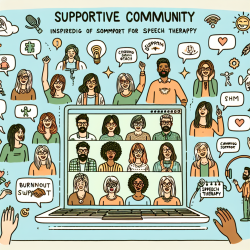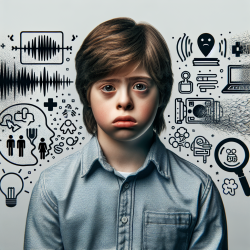Introduction
Aphasia, a condition affecting language production and comprehension, impacts approximately 40% of stroke survivors. The complexity of aphasia necessitates innovative approaches to therapy, as traditional methods may not address all facets of the condition. The recent study "Cognitive Training to Enhance Aphasia Therapy (Co-TrEAT): A Feasibility Study" offers promising insights into enhancing therapy outcomes through cognitive training.
The Co-TrEAT Study: A Brief Overview
The Co-TrEAT study explored the feasibility and preliminary efficacy of integrating working memory (WM) training with traditional aphasia therapy. Participants were divided into two groups: one received Phonological Components Analysis (PCA) therapy combined with a computerized adaptive dual n-back WM task, while the other received PCA with an active control task.
Key Findings and Implications for Practice
The study demonstrated that combining WM training with PCA therapy could lead to significant improvements in language and communication outcomes. Participants in the WM intervention group showed notable gains in naming accuracy and aphasia severity, as measured by standardized tests like the Western Aphasia Battery and the Boston Naming Test.
For practitioners, these findings suggest that incorporating cognitive training into therapy could enhance the effectiveness of traditional aphasia treatments. Here are some actionable insights:
- Integrate Cognitive Exercises: Consider adding cognitive exercises, such as the n-back task, to your therapy sessions to target WM deficits.
- Customize Therapy Plans: Tailor therapy plans to include both language and cognitive components, addressing the multifaceted nature of aphasia.
- Monitor and Adjust: Regularly assess patient progress and adjust therapy plans to maximize outcomes.
Challenges and Future Directions
While the Co-TrEAT study showed promising results, challenges such as recruitment and resource limitations were noted. Future research should focus on larger sample sizes and explore remote delivery options for cognitive training, making therapy more accessible.
Practitioners are encouraged to stay informed about ongoing research and consider participating in studies to contribute to the growing body of evidence supporting cognitive training in aphasia therapy.
Conclusion
The integration of cognitive training into aphasia therapy represents a promising advancement in rehabilitation science. By leveraging these insights, practitioners can enhance therapy outcomes, ultimately improving the quality of life for individuals with aphasia.
To read the original research paper, please follow this link: Cognitive Training to Enhance Aphasia Therapy (Co-TrEAT): A Feasibility Study.










